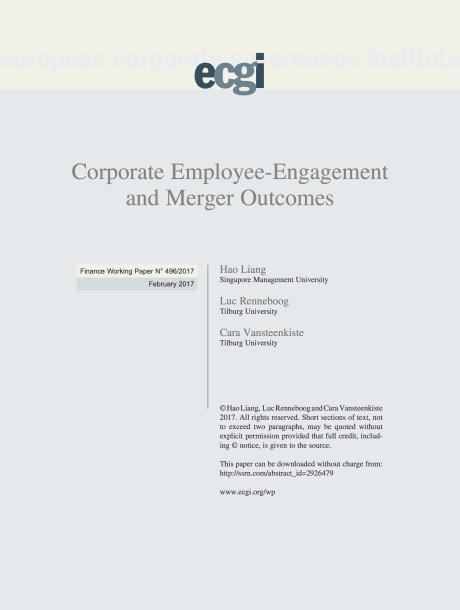
Corporate Employee-Engagement and Merger Outcomes
Abstract
Extending the theories of employee incentives and inalienability of human capital, we investigate the link between a firm’s engagement in employee issues and the returns to shareholders around mergers and acquisitions (M&As) and analyze an international sample of 4,565 M&A deals from 48 countries. We find that stronger employee-engagement— especially in terms of monetary benefits — by the acquiring firm is positively related to shareholder returns in domestic deals, but this positive effect is attenuated in cross-border deals, whereas workforce diversity, training and development, or health and safety do not affect shareholder value. The attenuating effect of cross-border deals is stronger when uncertainty about post-merger labor integration is higher and when economic nationalism in the target’s country is stronger, consistent with an explanation based on the inalienability of human capital and employment policies. Moreover, we find that most effects of employee-engagement on shareholder returns are driven by the acquirer rather than the target, and that they persist in the long run post-merger.






